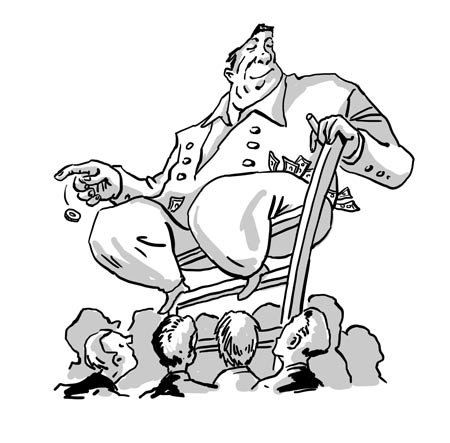M WAQAR..... "A man's ethical behavior should be based effectually on sympathy, education, and social ties; no religious basis is necessary.Man would indeed be in a poor way if he had to be restrained by fear of punishment and hope of reward after death." --Albert Einstein !!! NEWS,ARTICLES,EDITORIALS,MUSIC... Ze chi pe mayeen yum da agha pukhtunistan de.....(Liberal,Progressive,Secular World.)''Secularism is not against religion; it is the message of humanity.'' تل ده وی پثتونستآن
Friday, December 23, 2011
NY protests offer warning to Chinese rich
By Rong Xiaoqing
There aren't many Chinese camping in Zuccotti Park, the home of the ongoing Occupy Wall Street movement. Not a surprise. Chinese immigrants have long been known for being silent and invisible at political events, especially one like this that was started mainly by young white hipsters.
But it doesn't mean there aren't Chinese at the scene. These days tourists from China coming to visit the site of the destroyed World Trade Center and the newly opened 9/11 Memorial seem to have added Zuccotti Park, which is only a couple of blocks away from Ground Zero, as a must-see.
The Chinese tourists won't usually walk into the protesting crowd. They like to walk around the edges of the park, taking some pictures and making some comments within their own groups. The middle aged man I met the other afternoon was a typical example. He exaggeratedly waved his fist to the crowd and shouted jokingly, "We Chinese people support you guys!" before he was pulled away by his laughing wife and daughter.
The curiosity is understandable. Protesting is nothing new in American history and marching and protesting have almost become street fixtures in New York since the 2008 financial meltdown. But for many Chinese tourists, who have only just started to come to the US in large numbers, Occupy Wall Street may be the first major American demonstration that they have witnessed in person, thanks to the long lasting nature, the convenient location of the protest and the lavish coverage in the Chinese media.
But if the Chinese tourists, who presumably belong to the wealthy class in their own country, simply take what's happening in Zuccotti Park as an exotic street drama without thinking about how it reflects on themselves, they may have cause for regret.
Resentment against the rich, which is a major engine of the movement, exists in both the US, where wealth has been flowing for a long time and China, where wealth has been accumulating rapidly. But the American rich, who are the target of the Wall Street protesters and the Chinese rich, who are mainly amused gawkers here, couldn't be more different.
In the US, the rich have a tradition of giving back to society. The donation from robber barons in the 19th century blessed New York with many gifts, such as the renowned Carnegie Hall and the Rockefeller Plaza.
The foundations of George Soros and Bill Gates are pushing earthshaking changes in the nation and in the world. Even Zuccotti Park was built and maintained by the real estate firm Brookfield Properties for the public as part of a planning deal with the authorities. In China, philanthropy is still an infant idea that scares many rich people away.
In the US, the rich often try to avoid flaunting their wealth in public, especially when the economy is weak. Billionaires like Warren Buffet and the late Steve Jobs have been known for dressing simply. New York Mayor Michael Bloomberg may often fly on his private jet to Bermuda for vacations, but he is also known for wearing the same pair of shoes for 10 years. Since the economy started to nosedive, shops on Fifth Avenue started to use logo-less shopping bags to cater to the need of their customers who want to be anonymous when buying luxuries.
To be sure, the American rich are not Santa Clauses. They still hold an ever-increasing amount of national wealth and use their money to fight political efforts to make them pay more, and that's what ignited Occupy Wall Street. But even when they become the target, multi-millionaires from Blackrock's Laurence Fink to Citigroup's Vikram Pandit still manage to publicly indicate that they are sympathetic and understanding of their attackers.
Much of this is merely self serving – a way of heading off criticism or worse. But it seems to be working. At least, the protesters only want to push the rich to give back more rather than having them beheaded.
The newly rich in China are still on a learning curve. One thing they may want to be aware of is that being rich is not only about knowing how to drink wine, collect art, golf or ride horses.
Sometimes, it is not about how much money you have and how generous you are. It is the sophistication of getting more by taking less and showing people you care about wider society that has yet to become part of Chinese behavior.
The author is a New York-based journalist. rong_xiaoqing@hotmail.com


No comments:
Post a Comment